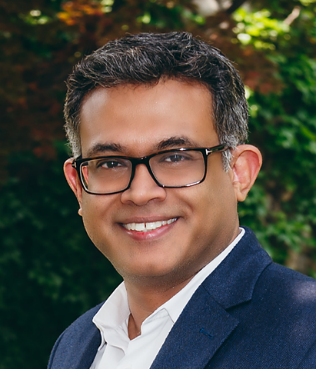Invited Speakers

Suman Datta
University of Notre Dame, Notre Dame, Indiana, USA
Title: Steep Slope Ferroelectric Field Effect Transistor
Abstract: In this work, we present an analysis of the switching dynamics of ferroelectrics that provides a critical insight into the steep slope exhibited by Ferroelectric Field Effect Transistor (FeFET). We show that, steep slope often reported in FeFETs is related to two competing mechanisms – the polarization switching dynamics in the ferroelectric and the time delay of the compensating free-charge. This gives rise to transient negative capacitance (NC), the strength of which is a function of gate voltage sweep range and sweep rate. We will also compare and contrast the transient NC effect with the stabilized NC effect observed in ferroelectric-dielectric stacks.
Biography: Suman Datta is the Frank M. Freimann Chair Professor of Engineering at the University of Notre Dame. Prior to that, he was a Professor of Electrical Engineering at The Pennsylvania State University, University Park, from 2007 to 2011. From 1999 till 2007, he was in the Advanced Transistor Group at Intel Corporation, Hillsboro, where he developed several generations of high-performance logic transistor technologies including high-k/metal gate, Tri-gate and non-silicon channel CMOS transistors. His research group focuses on emerging device concepts that support and enable new computational models. He is a recipient of the Intel Achievement Award (2003), the Intel Logic Technology Quality Award (2002), the Penn State Engineering Alumni Association (PSEAS) Outstanding Research Award (2012), the SEMI Award for North America (2012), IEEE Device Research Conference Best Paper Award (2010, 2011) and the PSEAS Premier Research Award (2015). He is a Fellow of IEEE and the National Academy of Inventors (NAI). He has published over 300 journal and refereed conference papers and holds 175 patents related to advanced semiconductors. He is the Director of a multi-university advanced microelectronics research center, called the ASCENT, funded by the Semiconductor Research Corporation (SRC) and the Defense Advanced Research Projects Agency (DARPA). He will serve as the Technical Program Chair of the 2019 IEEE International Electron Device Meeting (IEDM).